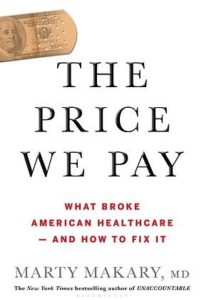Inside Angle
From 3M Health Information Systems
The complex world of health care pricing and why it is time to consider big changes
H
Here’s an example: A person with a typical skin cancer can have a surgeon remove that cancer in an office setting. For basal cell cancer, this removal can be the cure. One removal technique is Mohs surgery, or cutting out a section and looking at it under a microscope right then during the procedure to be sure the margins are clear (all the cancer is out).
The American College of Mohs Surgery suggests that a Mohs surgeon should average less than 2.3 sections per cancer, but some Mohs surgeons may routinely take 3 or more sections on most of the cases they perform. These surgeons are outliers. One explanation for this outlier behavior is that since the surgeon is paid extra for each section, they may be responding to the financial incentive of “more volume = more money.”
Another example of the mess is that it’s very difficult (and in some cases bordering on impossible) for a person to receive an upfront, guaranteed price for a health care service they are seeking.

Dr. Makary describes the importance of changing the way we measure health care quality—accounting not only for “does this surgeon have an appropriate rate of post-operative complications” but adding “was this surgery even appropriate in the first place?” His research team at Hopkins developed Improving Wisely measures as an example of how we might better track appropriateness, looking for true outliers through recognizable patterns in claims data rather than invoking the collective punishment of prior authorization.
Listen to our discussion on the Inside Angle podcast and hear also of his recent forays into COVID-19 preparedness.
L. Gordon Moore, MD, is senior medical director, Clinical Strategy and Value-based Care for 3M Health Information Systems.


